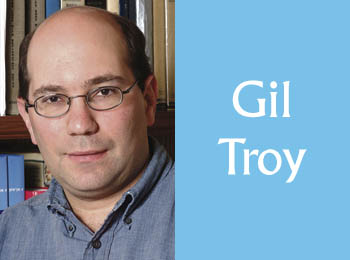New years are artificial but convenient. We use these moments to take stock and recalibrate, seeing what we have accomplished, where we have fallen short and how we can do better. Similarly, the Canadian Jewish News’ reset should inspire us to stretch – using the transition to ask what we want from this publication – and what we want from our community.
The publication should continue its core mission of being both town crier and town scold. Information is the lifeblood of communities. We need chains of transmission like The CJN to tell us what’s happening to us and around us. Editors are necessarily selective – they choose what is relevant, which is a major source of their power.
The new leaders should remember that while predictable is good and reassuring, the unpredictable is often more challenging. Yes, we want to know what’s happening as our institutions go through their yearly cycle of events, celebrating holidays, raising money, adhering to particular rituals. But we also want to know what’s happening in our schools and our synagogues, on campus and in homes. We also need to look ahead, uncovering trends that might not seem so obvious and thinking about future challenges.
We also want a town scold. A strong, independent, editorial voice will highlight our shortcomings, so we can do better. Communities should be comforting, but they cannot be complacent. This is a major issue in the Jewish community. We’re not Jewishly ambitious – the very awkwardness of the term highlights the problem.
As human beings, as moderns, we set all kinds of goals for ourselves – getting higher grades or earning more money, exercising more regularly or losing those last few pounds. But when’s the last time we set Jewish goals for ourselves as individuals, as families, or as institutions? Do we as individuals decide that next year, I want to follow more rituals, or learn more deeply, or perform more good deeds? Do we as families sit down and say, “It’s time to shake up our Jewish practice, let’s get radical and forge new directions or set new goals?” Do rabbis get up on Rosh Hashanah and talk about some new standards for success by which they and their congregations hope to be judged? Our town scold should be pushing us toward that, while highlighting issues, scandals and problems as they arise.
The CJN also should serve as the town healer. Too much of Jewish life today is fragmented. We define ourselves by our differences – different denominations, different neighbourhoods, different stands on Israel. But we also should learn from the next generation. According to the demographers at the Cohen Center of Brandeis University tracking Birthright Israel participants, “just Jewish” is emerging as North American Jewry’s largest demographic group. Younger Jews don’t want to define themselves ideologically or institutionally. While this has its shortcomings and often reflects a lack of texture or commitment in their Jewish lives, we should learn from them about finding the plane on which we all can interact.
That fundamental sense of solidarity has been one of Birthright Israel’s great successes. Without ignoring diversity, and while respecting pluralism, Birthright has pushed young Jews to rally around what unites them more than what divides them – in terms of Judaism and in terms of Israel. The Jewish practices Birthright participants engage in on the trip, be it eating kosher or celebrating Shabbat, aren’t labelled “Orthodox” or “Conservative” or “Reform,” they’re just Jewish.
Similarly, despite the many attempts to politicize and polarize around the Israel issue, Birthright approaches the Israel question by appreciating the Jewish state as belonging to all Jews, and not being defined as the State of Labor or the State of Likud, the State of the Left or the State of the Right. All participants are invited to trail-blaze their own “Jewish journeys,” with “no strings attached,” meaning no ideology owns them and no organizations demands payback. The CJN should operate on a similarly independent plane.
Over the last few months, we have seen how important The CJN is to our community. We have learned how many people rely on this publication as their window into the Jewish world. Now is the time to make sure the window is clear and that the view – what we see when we look at our community – is expansive and inspiring.
